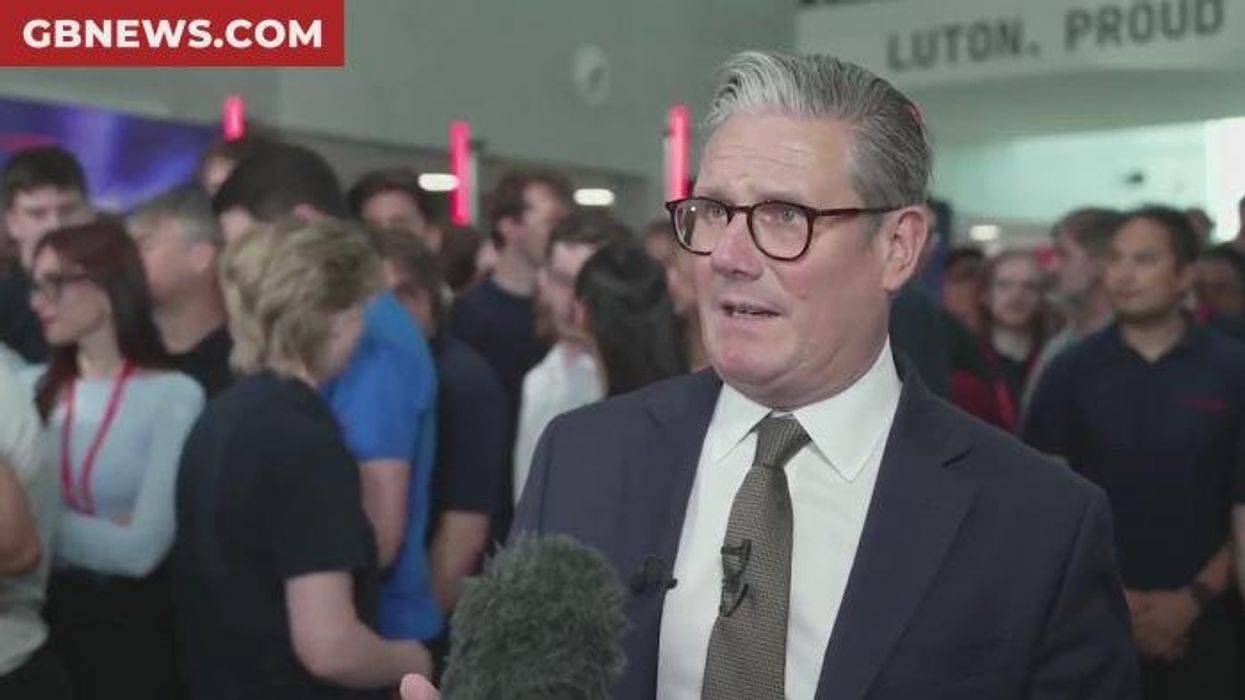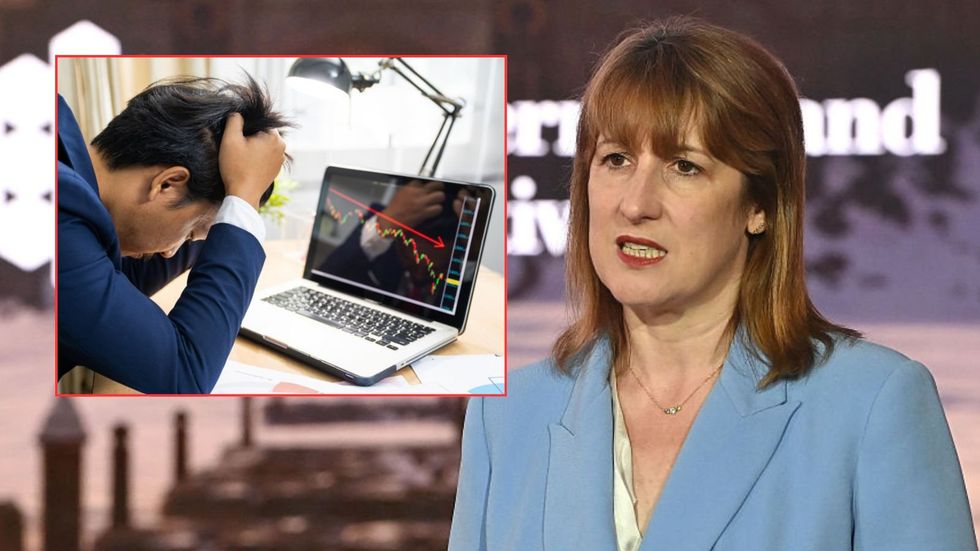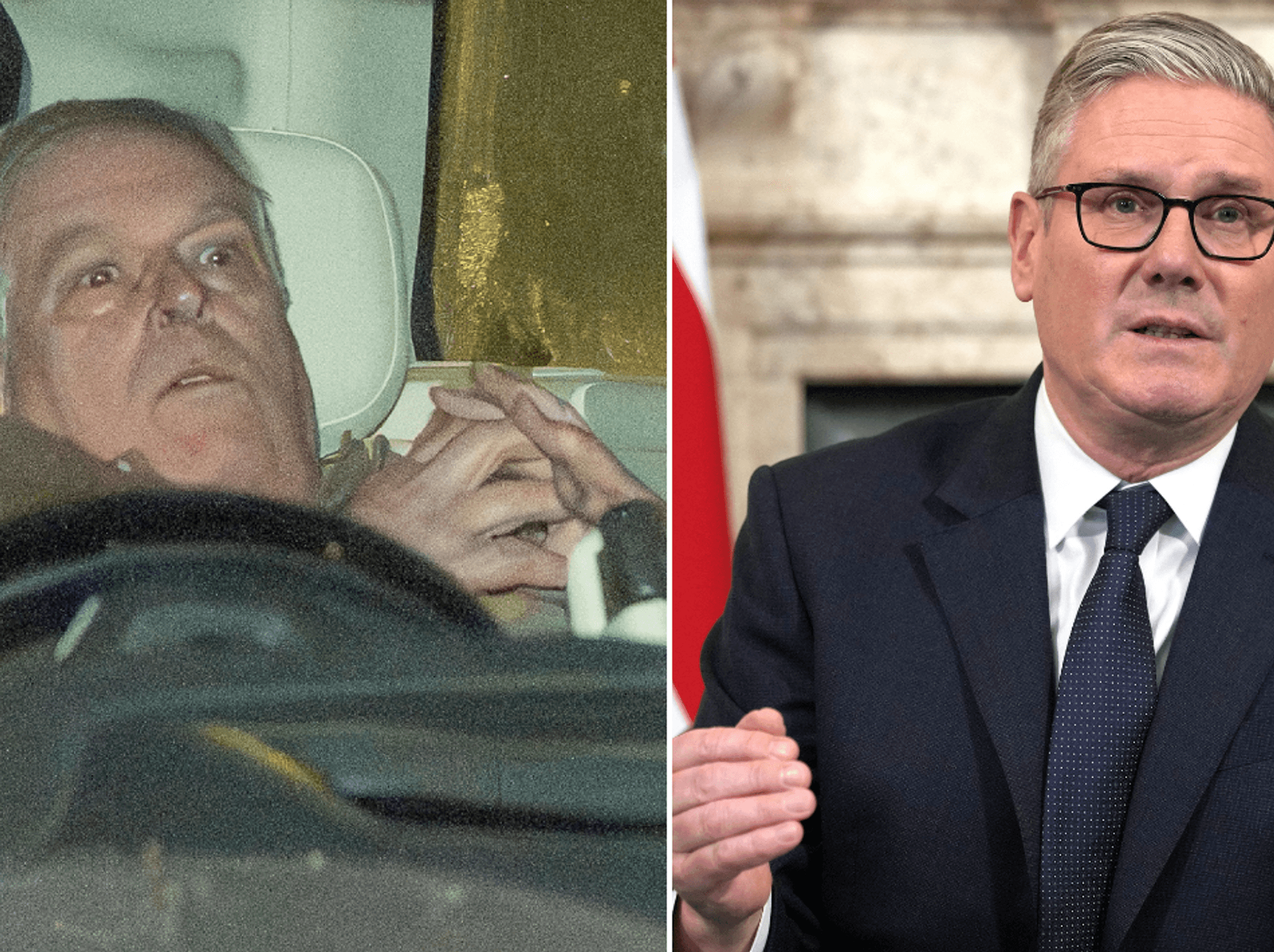Economy at 'moment of reckoning' as major industry faces FIVE MILLION job cuts

Labour's history of economic woes and recessions |
GBNEWS

Fears of mass job losses grow as industries warn soaring costs and weak growth could devastate Britain’s economy
Don't Miss
Most Read
Leaders in Europe are under growing pressure to tackle a deepening jobs crisis that could put millions of workers at risk.
Experts warn that five million jobs could be lost if key industries and their supporting sectors continue to decline.
At the same time, new recruitment data shows more people are looking for work while the number of available jobs continues to fall across the wider economy.
Sir Jim Ratcliffe, the billionaire founder of Ineos and co-owner of Manchester United, has called for urgent government action.
He warned that leading politicians are at the "eleventh hour" when it comes to saving the chemicals sector, and said that without immediate relief on high energy costs and carbon taxes, Europe faces a "catastrophic decline" in one of its most important industries.
Worth £17billion and ranked as Britain’s seventh-richest person, Sir Jim described the current crisis as a "moment of reckoning".
He stressed that the chemicals sector is vital to Europe’s economy, directly employing one million people and generating £700billion in turnover, making it the continent’s fourth-largest industry.
"The politicians have to be very clear that we are at the eleventh hour and they can't prevaricate any longer and they really do need to make some changes," Sir Jim stated.
He added: "The biggest problems are energy, where we are currently paying four times for gas what America are paying. We’re paying four times for electricity what America are paying and then laid on top of that we have this hug carbon tax which is extremely expensive and unaffordable when you layer on top of that the energy costs that we’re paying.
Sir Jim also said: "Economically, it’s a million jobs – five million if you take the supporting industry"
Fresh analysis from the Recruitment and Employment Confederation and KPMG reveals deteriorating employment conditions across Britain, with jobseeker numbers experiencing their second-sharpest increase since November 2020.

The chemicals sector is vital to Europe’s economy
|GETTY
Sir Jim warned that Britain’s chemicals industry is having the "life squeezed out of it" by government policies and is now close to extinction. He accused ministers of allowing decades of de-industrialisation, dating back to the 1970s and 1980s, to continue unchecked, pointing to a lack of a proper energy strategy and punishing carbon taxes. His comments came as Ineos confirmed the closure of the UK’s last remaining synthetic ethanol plant at Grangemouth, blaming soaring energy costs and green levies.
New data shows the UK labour market is still struggling, with conditions remaining tough and far from recovery.
Figures from S&P Global’s September purchasing managers’ index revealed permanent job placements scored just 44.8, well below the neutral 50 mark that signals stability.
The findings come nearly a year after Chancellor Rachel Reeves’s first Autumn Budget, which added £20billion in employment taxes by raising employer national insurance contributions.
The report found government departments have seen sharper drops in vacancies than private firms for both permanent and temporary jobs, while wage growth has remained weak even as unemployment rises.
Recruitment giant Hays also reported an eight per cent fall in like-for-like net fees in the quarter to September, with Britain and Ireland hit hardest as fees there dropped by nine per cent.
LATEST DEVELOPMENTS:

The businessman warned that their biggest problem is energy, with European firms paying four times as much for gas as companies in America
| PAThe company has reduced its UK and Ireland workforce by seven per cent in the quarter and 25 per cent annually.
Chief executive Dirk Hahn acknowledged that whilst post-summer activity showed typical recovery patterns, permanent hiring conditions remain difficult.
The firm anticipates these challenging circumstances will continue throughout 2025-26, prompting cost-reduction measures targeting £45 million in savings by 2028-29.
Government sector recruitment proved especially weak, with net fees plummeting 20 per cent compared to a five per cent decrease in private sector hiring.

Recruitment giant Hays also reported an eight per cent fall in like-for-like net fees in the quarter to September, with Britain and Ireland hit hardest as fees there dropped by nine per cent
| GETTYThe Ineos chairman has outlined three essential measures for preventing industrial collapse. "Firstly energy needs to be competitive in Europe. The very minimum they need to do is remove the green tax and levies from energy costs in Europe," Sir Jim explained.
"Secondly, they need to scrap the carbon tax. We just simply cannot afford the carbon tax. It's just shutting the industry down," he continued. His third demand involves implementing protective tariffs whilst accelerating their approval process, criticising current procedures that require years for consideration.
The industrialist also advocates reinstating free allocations and lowering carbon pricing to deliver immediate relief whilst allowing investment in decarbonisation technologies.
He seeks targeted support and "well-designed carbon border measures" to defend European market share against competitors benefiting from subsidies or less regulated energy sources.
More From GB News










